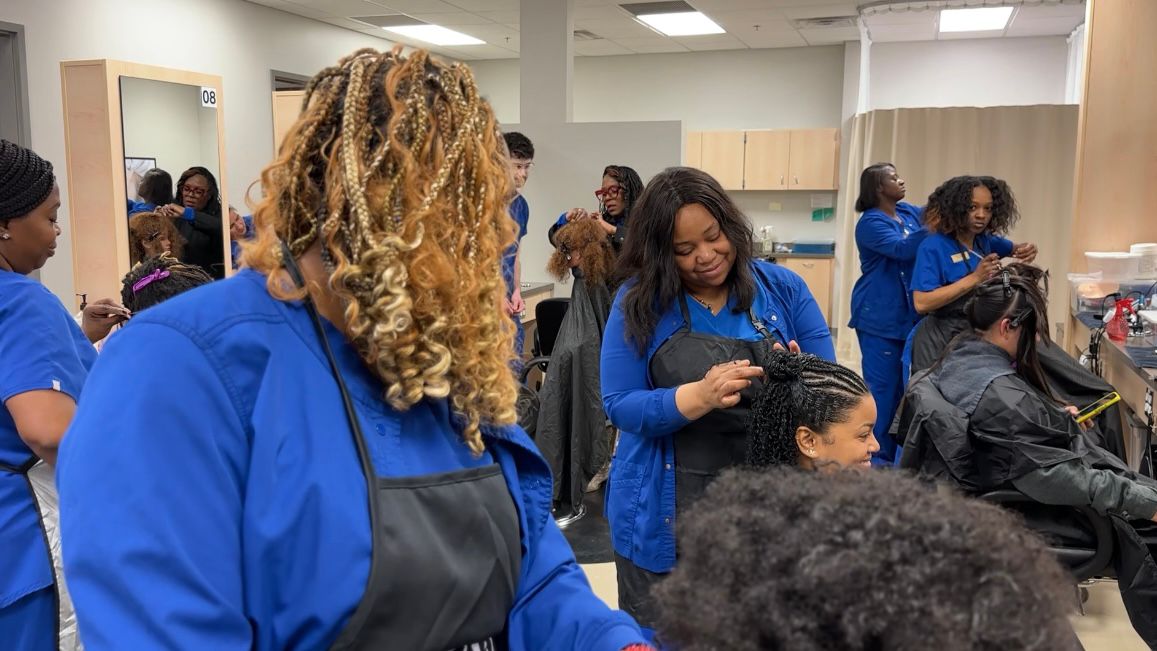RALEIGH, N.C. – Wake County Public Schools is looking to update its dress code policy, but it has nothing to do with clothing.
The Wake County Board of Education’s Policy Committee shared that hair discrimination not only impacts self-esteem, but school attendance.
With this in mind they are working to become the first school district in the state to adopt a dress code policy that incorporates language from the CROWN Act, which stands for “Creating a Respectful and Open World for Natural Hair.” It aims to expand protection of certain hairstyles including braids, locs, twists and afros.

“When you see a teacher that is wearing her hair naturally, when you see a principal that is wearing his or her hair naturally, when they see locs or Bantu knots, or braids, then it helps them to realize that that is a part of my identity and it's OK, I can still be successful. I can still grow in society wearing my natural hair,” said Natasch Connelly, an instructor in Wake Technical Community College’s cosmetology program.
“When I was smaller, I didn't see that. Straight was in. And if it wasn't straight and your ponytails weren’t slick and puffy at the ends, you got talked about,” she said.
Wake Tech’s cosmetology program works specifically with natural hair and encourages its students and clients to embrace it. Connelly believes this policy is necessary to protect identity, culture and self-expression found through hair styles.

“In my culture, as an African-American, I was taught that your hair was your covering and it should always be well-groomed, so when society says, well-groomed is straight, but my hair isn't straight, it automatically causes a self-worth issue,” Connelly said.
According to the CROWN Act, 86% of Black teens who experience discrimination say they have experienced it based on their hair by the age of 12. Many of her students are in the cosmetology program because of their experiences with their own natural hair.
“What people say to you sticks with you, so when your hair is not flowing or if it is challenging for someone to do your hair, it causes the issue within yourself and you remember those things,” Connelly said.
Wake County and the City of Raleigh already have hair non-discrimination policies in place. The one for Wake schools would apply to both students and staff. They ended their policy meeting with the decision to look at how to apply the non-discrimination language to their current bullying and harassment policies as well.
“If you choose to wear braids, if you choose to wear Bantu locs, if you choose to wear your hair natural and it's a tight curl paddling, you should not be looked down on,” Connelly said. “It's OK to be who you are, whatever that looks like you're still beautiful.”



